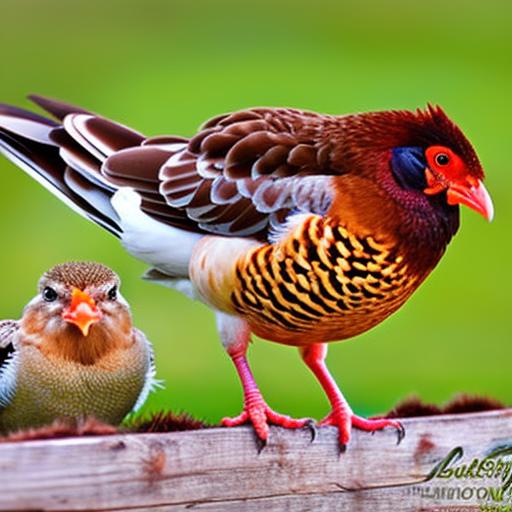Chicken pecking and bullying is a common issue that many chicken owners face. It can be distressing to see your flock engaging in aggressive behavior towards each other, and it’s important to understand the root causes and identify the signs of pecking and bullying. By addressing these issues, you can create a healthier and happier environment for your chickens.
Key Takeaways
- Understanding the root causes of chicken pecking and bullying is crucial for preventing and addressing the issue.
- Identifying signs of pecking and bullying in your flock, such as feather loss and aggression, can help you take action early on.
- Proper nutrition and diet are essential for maintaining healthy and happy chickens, and can also help prevent pecking and bullying behavior.
- Creating a comfortable and safe living environment for your flock, including providing adequate space and enrichment activities, can reduce stress and prevent pecking and bullying.
- Introducing new chickens to an existing flock requires careful planning and management to prevent pecking and bullying.
Understanding the Root Causes of Chicken Pecking and Bullying
Chickens peck and bully each other for various reasons. One of the main reasons is establishing a hierarchy within the flock. Chickens have a natural instinct to establish a pecking order, where each bird knows its place in the social structure. This hierarchy is established through pecking, with higher-ranking birds asserting their dominance over lower-ranking ones.
Another reason for pecking and bullying is boredom or stress. Chickens are intelligent animals that require mental stimulation and physical activity. When they are confined to small spaces or lack enrichment activities, they may become bored or stressed, leading to aggressive behavior towards their flock mates.
Identifying the Signs of Pecking and Bullying in Your Flock
It’s important to be able to identify the signs of pecking and bullying in your flock so that you can address the issue promptly. Some common signs include feather loss, wounds or injuries, excessive aggression towards certain birds, and isolation or exclusion from the rest of the flock.
To observe your flock for signs of pecking and bullying, spend some time watching their interactions. Pay attention to any aggressive behavior, such as chasing, pecking, or pulling out feathers. Also, look for any birds that appear stressed or fearful, as they may be victims of bullying.
The Importance of Proper Nutrition and Diet for Your Chickens
| Metrics | Description |
|---|---|
| Egg Production | Proper nutrition and diet can increase egg production in chickens. |
| Feather Quality | A balanced diet can improve feather quality and reduce feather loss in chickens. |
| Immune System | Good nutrition can boost the immune system of chickens, making them less susceptible to diseases. |
| Bone Health | Calcium-rich diets can improve bone health and prevent fractures in chickens. |
| Growth and Development | Proper nutrition is essential for the growth and development of chickens, especially for young chicks. |
| Reproductive Health | A balanced diet can improve reproductive health and fertility in chickens. |
Proper nutrition plays a crucial role in preventing pecking and bullying among chickens. When chickens are not receiving the necessary nutrients, they may become more aggressive or exhibit abnormal behavior. It’s important to provide a balanced diet that includes a variety of grains, seeds, fruits, vegetables, and protein sources.
In addition to a balanced diet, supplements can also help maintain a healthy flock. For example, providing calcium supplements can help prevent feather pecking, as calcium deficiency can lead to abnormal feather growth. Similarly, providing probiotics can promote gut health and reduce stress in chickens.
Creating a Comfortable and Safe Living Environment for Your Flock
A comfortable and safe living environment is essential for preventing pecking and bullying among chickens. Chickens need proper shelter, bedding, and ventilation to thrive. Make sure their coop is clean, dry, and well-ventilated to prevent the buildup of ammonia and other harmful gases.
Provide enough bedding material, such as straw or wood shavings, to keep the coop warm and comfortable. This will also help absorb moisture and prevent the growth of bacteria or fungi that can cause infections.
The Benefits of Providing Adequate Space for Your Chickens

Providing adequate space for your chickens is crucial for their well-being and can help prevent pecking and bullying. Overcrowding can lead to stress and aggression among chickens. As a general rule of thumb, each chicken should have at least 4 square feet of indoor space in the coop and 10 square feet of outdoor space in the run.
If you notice signs of pecking and bullying in your flock, consider increasing the amount of space available to them. This will allow them to establish their own territories and reduce competition for resources.
Introducing New Chickens to an Existing Flock: Dos and Don’ts
Introducing new chickens to an existing flock can be a delicate process that requires careful planning. It’s important to follow certain dos and don’ts to minimize stress and aggression among the birds.
Do provide a separate area for the new chickens to acclimate to their new surroundings before introducing them to the existing flock. This will allow them to establish their own pecking order without direct confrontation.
Don’t introduce new chickens to the flock all at once. Instead, introduce them gradually, starting with short supervised visits and gradually increasing the duration. This will give the birds a chance to get used to each other’s presence and reduce the likelihood of aggression.
The Role of Roosters in Preventing Chicken Pecking and Bullying
Roosters play an important role in maintaining a healthy flock and preventing pecking and bullying among hens. They act as protectors and mediators, intervening in conflicts and establishing order within the flock.
Roosters use their size and strength to deter aggressive behavior and protect weaker or more submissive hens. They also help maintain harmony by mediating disputes and preventing excessive aggression.
The Benefits of Providing Enrichment Activities for Your Chickens
Providing enrichment activities for your chickens is essential for their mental and physical well-being. Enrichment activities can help reduce boredom, stress, and aggression among chickens.
Some examples of enrichment activities include providing toys, such as hanging mirrors or treat dispensers, for the chickens to peck at or play with. You can also provide them with natural materials, such as branches or logs, for them to perch on or scratch at.
How to Treat Injuries Caused by Pecking and Bullying
Injuries caused by pecking and bullying can range from minor wounds to more serious injuries that require medical attention. It’s important to treat these injuries promptly to prevent infection and further complications.
For minor wounds, clean the area with mild antiseptic solution and apply an antibacterial ointment. Keep an eye on the wound for signs of infection, such as redness, swelling, or discharge. If the wound does not improve or if it worsens, seek veterinary care.
Seeking Professional Help: When to Call a Veterinarian or Poultry Expert
There are certain situations when it’s necessary to seek professional help for pecking and bullying issues in your flock. If the aggression is severe and persistent, or if you are unsure how to address the issue on your own, it’s best to consult a veterinarian or poultry expert.
A qualified veterinarian or poultry expert can assess the situation, provide guidance on how to manage the aggression, and recommend any necessary treatments or interventions.
In conclusion, understanding the root causes and identifying the signs of pecking and bullying in your flock is crucial for creating a healthy and harmonious environment for your chickens. By providing proper nutrition, a comfortable living environment, adequate space, and enrichment activities, you can prevent pecking and bullying among your chickens. If issues persist, don’t hesitate to seek professional help. Remember, a happy and stress-free flock is a productive and thriving one.
If you’re looking for tips on how to keep chickens from pecking each other, you might find this article on chicken coop interior ideas helpful. Creating a well-designed and spacious coop can help reduce stress and aggression among your flock. From choosing the right nesting boxes to providing ample perches and entertainment, this article offers practical advice on creating a harmonious living space for your chickens.
FAQs
What is pecking in chickens?
Pecking is a natural behavior in chickens where they peck at each other. However, excessive pecking can lead to injuries and even death.
Why do chickens peck each other?
Chickens peck each other for various reasons such as establishing dominance, boredom, overcrowding, and stress.
What are the signs of pecking in chickens?
Signs of pecking in chickens include feather loss, wounds, bleeding, and cannibalism.
How can you prevent chickens from pecking each other?
You can prevent chickens from pecking each other by providing enough space, food, and water, reducing stress, adding distractions such as toys, and using anti-pecking sprays.
What are some natural remedies for pecking in chickens?
Some natural remedies for pecking in chickens include adding apple cider vinegar to their water, providing a dust bath, and adding herbs such as oregano and garlic to their feed.
What should you do if you notice excessive pecking in your chickens?
If you notice excessive pecking in your chickens, you should separate the injured bird, provide first aid if necessary, and address the underlying cause of the pecking.
Meet Walter, the feathered-friend fanatic of Florida! Nestled in the sunshine state, Walter struts through life with his feathered companions, clucking his way to happiness. With a coop that’s fancier than a five-star hotel, he’s the Don Juan of the chicken world. When he’s not teaching his hens to do the cha-cha, you’ll find him in a heated debate with his prized rooster, Sir Clucks-a-Lot. Walter’s poultry passion is no yolk; he’s the sunny-side-up guy you never knew you needed in your flock of friends!







